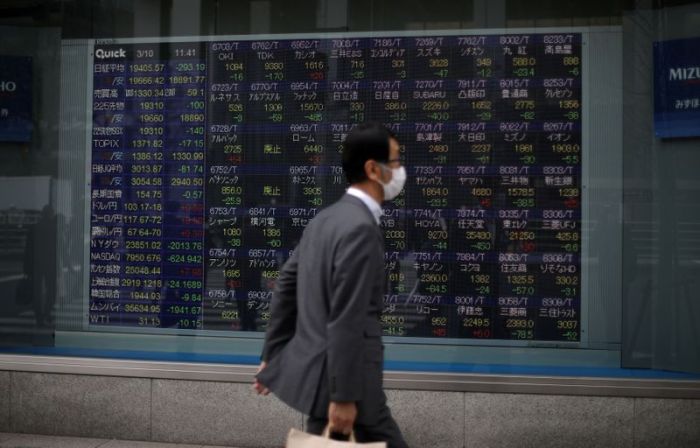NEW YORK (Reuters) – The U.S. dollar rose against some currencies on Friday after data showed the world’s largest economy lost fewer jobs than expected last month on fallout from the coronavirus pandemic.
The greenback posted its largest weekly gain versus the euro in more than a month, although that was more related to the European single currency’s issues concerning the European Central Bank’s asset purchases.
The dollar also notched its best weekly performance against the Swiss franc in a more than a month as well.
Friday’s data showed U.S. job losses in April hit 20.5 million, compared to expectations of 22 million. The unemployment rate was 14.7%, lower than the market forecast of 16%.
“This economic skid is so severe, does it really make much of a difference between a 20.5 million jobs lost and 22 million?” said Marc Chandler, chief market strategist at Bannockburn Global Forex in New York.
“It doesn’t really change anything. The market has rightly shrugged it off,” he added.
In afternoon trading, the dollar rose 0.4% against the yen to 106.71yen <JPY=EBS>, while the euro was flat against the dollar at $1.0836 <EUR=EBS>.
The dollar index, as a result, was little changed at 99.77 <=USD>.
Risk appetite was broadly higher on the day, with U.S. stocks and Treasury yields higher.
“Wall Street did not learn anything new regarding the U.S. labor situation, but one thing seems certain, price action is signaling that the majority of these job losses are expected to be short-lived,” said Edward Moya, senior market analyst, at OANDA in New York.
“Without a vaccine, it is hard to imagine that large parts of the economy (leisure, hospitality and retail) will recover the majority of jobs anytime soon. The surge in wages is getting no attention as the widespread job losses were mainly hurting the lower paying ones,” he added.
Wall Street did not learn anything new regarding the US labor situation, but one thing seems certain, price action is signaling that the majority of these job losses are expected to be short-lived.
(Reporting by Gertrude Chavez-Dreyfuss; Editing by Chizu Nomiyama, David Gregorio and Diane Craft)

















